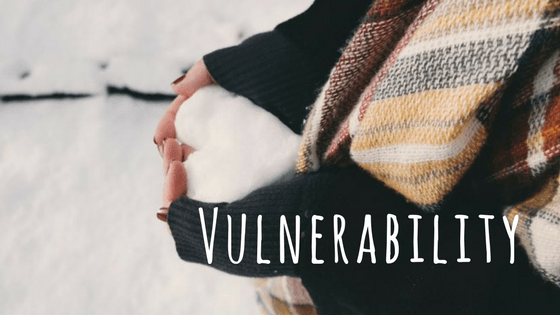“Vulnerability isn’t weakness. And that myth is profoundly dangerous. Vulnerability is the birthplace of innovation, creativity and change.” – Brene Brown
Demonstrating openness in an unpredictable world doesn’t make us helpless, it makes us courageous. Letting our walls down in relationships doesn’t make us powerless, it makes us more connected. As the New Year approaches, we think about our goals, and the tools we’ll need to succeed when the clock strikes midnight. Vulnerability may be an underrated trait, but it’s essential to cultivate. Here’s why we should embrace vulnerability and start daring greatly:
Vulnerability Defined:
According to research professor and author Dr. Brene Brown, vulnerability is uncertainty, risk and emotional exposure. Although it’s associated with shame and fear, this trait is also the core of hope, accountability and empathy. Peeling back your layers may not be comfortable, but it’s necessary to live whole heartedly. Brown’s research illustrates that what makes you vulnerable is what makes you feel alive.
To live with vulnerability is to embrace authenticity and truly be yourself. That’s why it’s the underlying root of human connection. When we lean in to the potential discomfort of vulnerability, our relationships grow and flourish. We need to eliminate the façade that vulnerability makes us weak or submissive. If we trade our fear for looking soft with the courage to be open, we’ll feel more fulfilled, loved and connected.
How to Cultivate it:
It simply starts with belief. According to Brown, the people who have a strong sense of love and belonging believe they are worthy of love and belonging. Believe that if you throw away your masks and surrender to uncertainty, you will still be accepted.
“When we spend our lives waiting until we’re perfect or bulletproof before we walk into the arena, we ultimately sacrifice relationships and opportunities that may not be recoverable, we squander our precious time, and we turn our backs on our gifts, those unique contributions that only we can make,” says Brown. “Perfect and bulletproof are seductive, but they don’t exist in the human experience.”
Brown illustrates that cultivating vulnerability means admitting when you need help. It’s asking your friends or family to support you when you feel overwhelmed. It’s asking for collaboration on a project at work, and understanding you can’t do everything on your own. Vulnerability is saying “I love you” first, trying something new, embracing imperfections and taking off your armor. It’s making a mistake, and apologizing instead of trying to appear competent and cool.
In our society, it’s tempting to numb emotions. Whether it’s with shopping, food or too many cocktails, people try to make their grief, shame or disappointment disappear. In truth, numbing these emotions numbs vulnerability. Pretending we’re perfect also hinders our ability to feel joy, gratitude and creativity. Brown suggests letting ourselves be seen…vulnerably, deeply, seen and loving with our whole hearts. Even though there’s no guarantee, this is how we can better build connections, foster kindness and find success in our personal and professional worlds.







